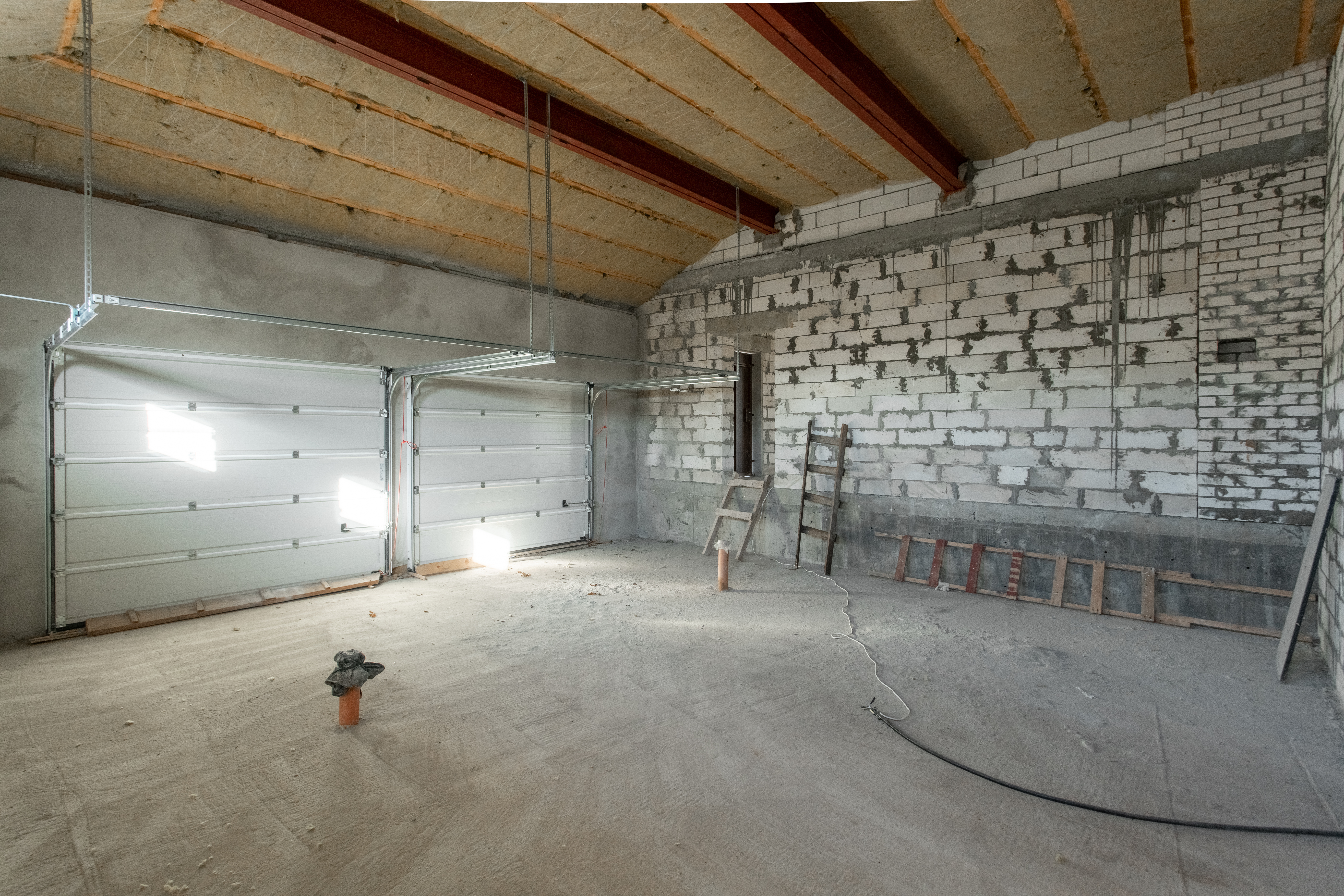FINANCIAL ADVICE | home improvement
How Much Does It Cost To Build A Garage?
Published February 6, 2019

Key Takeaways
- How much do you want to fit into your garage and, more importantly, how much space do you have to give a garage on your lot?
- Experts agree attached garages are generally less expensive than detached garages.
- Most people don’t think about the garage when they think about creating a great space to live.
Garages range from the merely functional to the deluxe. An uninsulated shed with just enough room to protect a car from the blistering sun and torturing hail is a garage. But so is a structure that not only protects your automobile but also gives you storage space, a workshop, even a laundry room or mini fitness center. Consequently, it’s tough to ballpark how much it costs to build a garage unless you first answer "What kind of garage?"
As a start, the average price to build a garage in Dallas is $29,551, with a range from about $18,000 to more than $42,000, according to a home improvement vendor site. Now, to look at particulars.
Garage Size
How much do you want to fit into your garage and, more importantly, how much space do you have to give a garage on your lot? Some estimates put the cost of garage building at around $40 a square foot so that you can calculate accordingly. This amount includes a cement slab, which may cost around $5 a square foot installed, plus lumber for the frame, siding, roofing materials, insulation, and so forth.
When planning your garage, though, you probably should think beyond what your own needs are and research what homebuyers in your area expect. A garage will usually increase the value of your home. While the two-car garage has been the standard for decades, more home buyers are looking for three car garages. They’re looking for garages that accommodate their hobbies as well as their automobiles.
Attached or Detached
Experts agree attached garages are generally less expensive than detached garages because the builders only have to add three walls instead of four. It is much easier to get electricity, heating and cooling, water, and other utilities to a garage if it’s attached to the house. One site estimated the cost of an attached garage at 3-to-7 times less than a detached one.
With an attached garage you don’t have to go out in the cold, rain, or heat, to get to the garage. If you keep exercise equipment, tools, or an extra freezer in the garage, having it attached to the house makes for a shorter and often more pleasant trip.
The potential downside to an attached garage is that, since it shares a wall with the home, its structural soundness is paramount and may require special permits since it has the potential to impact the structure of the rest of the dwelling. Another potential problem is that attaching a garage to the house can block access to the back yard.
Design That Can Bump Up the Cost
The design of the garage depends on how much room you have for it, what you want it to include, and what rules you must follow. A home owner’s association might have one set of rules. If your home is in a designated historic or conservation zone, that will include another set of rules. Obviously, you can’t just tack a modern garage on an antebellum home without creating some issues. Cities like Dallas have specific permitting rules for all kinds of construction.
The rules in your area may determine what materials you are allowed to use, which will impact the cost of the garage. In some neighborhoods, for example, you may have to use a particular standard roofing or siding material, or a particular kind of garage door so that all the homes in the area roughly match, do not detract from the home value or authenticity in the neighborhood.
After you know what the rules are, you need to use your imagination about how you—or someone who might want to buy your home one day —would want to use the space. Some garages, for example, have built-in storage space, work benches, racks for bicycles or kayaks. People come up with all kinds of interesting ideas for their garages. In a climate like Texas, some might want a garage topped with a deck whose elevation can help homeowners escape mosquitos and more easily catch a breeze.
Many newer garages use smart technology, like a connected home, as well as special coatings on the floor and insulation in walls and ceilings. Each upgrade, however, is likely to increase the price.
Finally, there is the aesthetic of the garage. Most people agree that a garage that looks like it was part of the original design of the home is more attractive than something that appears to have been stuck on or that dominates the street appearance of the home. While you may not worry about such things as a homeowner, it’s a good idea to talk to a realtor in your area about what buyers are looking for in garage design.
Also, please keep in mind that adding structures to your property will increase your property taxes.
Most people don’t think about the garage when they think about creating a great space to live. Garages can be so much more than storage areas for cars, and garages can recoup between 55% to 80% of the cost of the building. So they’re a worthy investment.
If you’re thinking about adding a garage to your home and would like help figuring out whether it’s a good idea for you, please contact us!
